A Thousand Worlds Within River City Bangkok
Inside River City Bangkok, a thousand worlds emerge through art, antiques, architecture, ...

The ocean tells us stories of natural beauty, but also of damage caused by human neglect. Plastic waste chokes marine life, from bottle caps lodged in coral reefs to food containers drifting across the waves.
Inspired by his love for the ocean and the urgent need to tackle waste in Thailand, Promrote “Ou” Vimolkul began driving small but meaningful change in Phuket. With his design knowledge and belief in practical solutions, he transforms discarded materials into everyday objects including bracelets, keyrings, can openers, medals and more.
Koktail had the chance to speak with him at a recent event, the SXB2025 Sustainability Expo in Bangkok, where he shared several pieces of his works and the heart and purpose behind them.
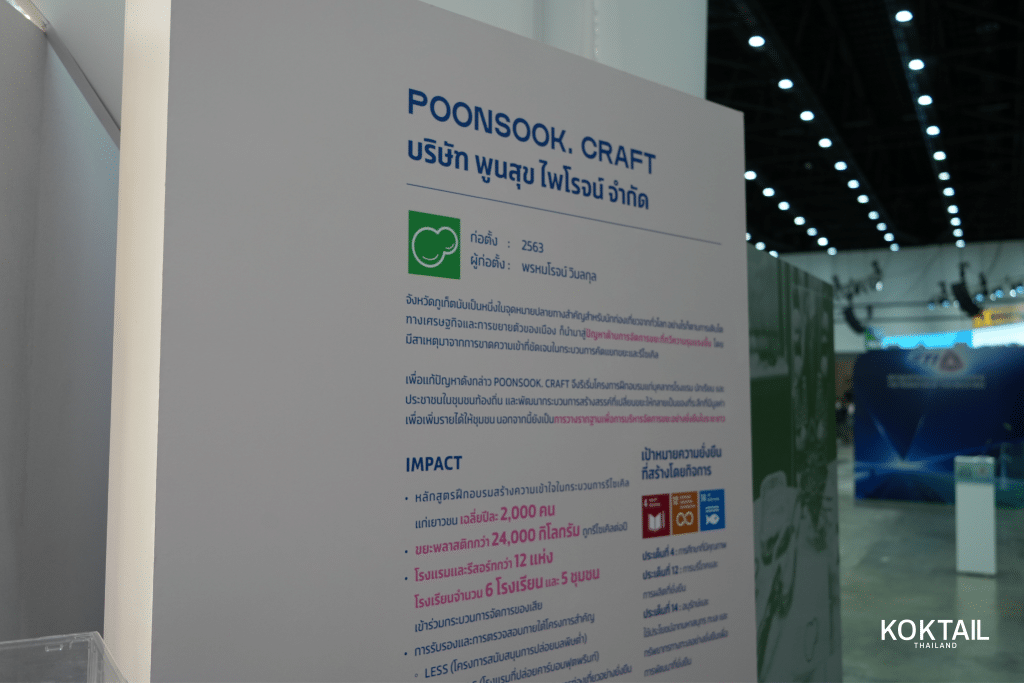
While studying in Melbourne, Australia, Ou was struck by the country’s clean streets, fresh air and effective waste management systems. Returning to Thailand, the contrast was vivid: polluted skies, mounting waste and beaches in his native Phuket strewn with trash. Seeing the impact on the ocean he had always loved became the turning point, sparking his commitment to find creative, practical ways to tackle waste at home.
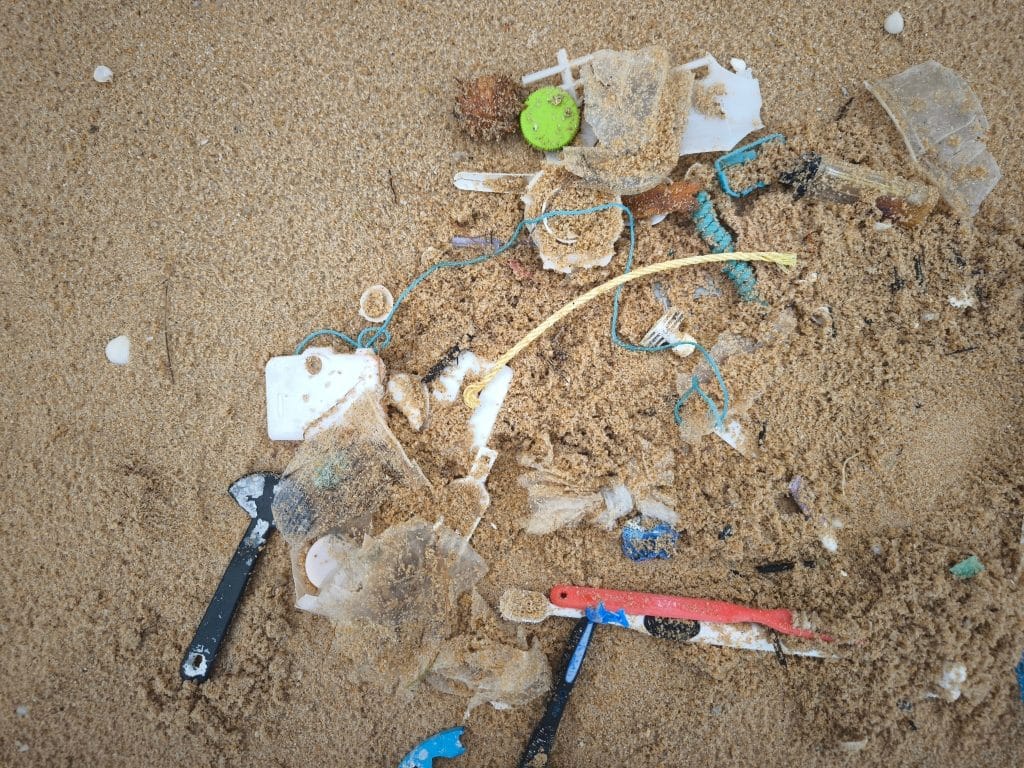
“I could see the differences so clearly. The moment you land and step out of the airport, you immediately feel that things shouldn’t be this way. The polluted environment just isn’t how it ought to be and I realised that Thailand doesn’t have a strong waste management system. Studying abroad really shaped both my mindset and my vision, and it made me want to help bring things here to the same standard as elsewhere.”
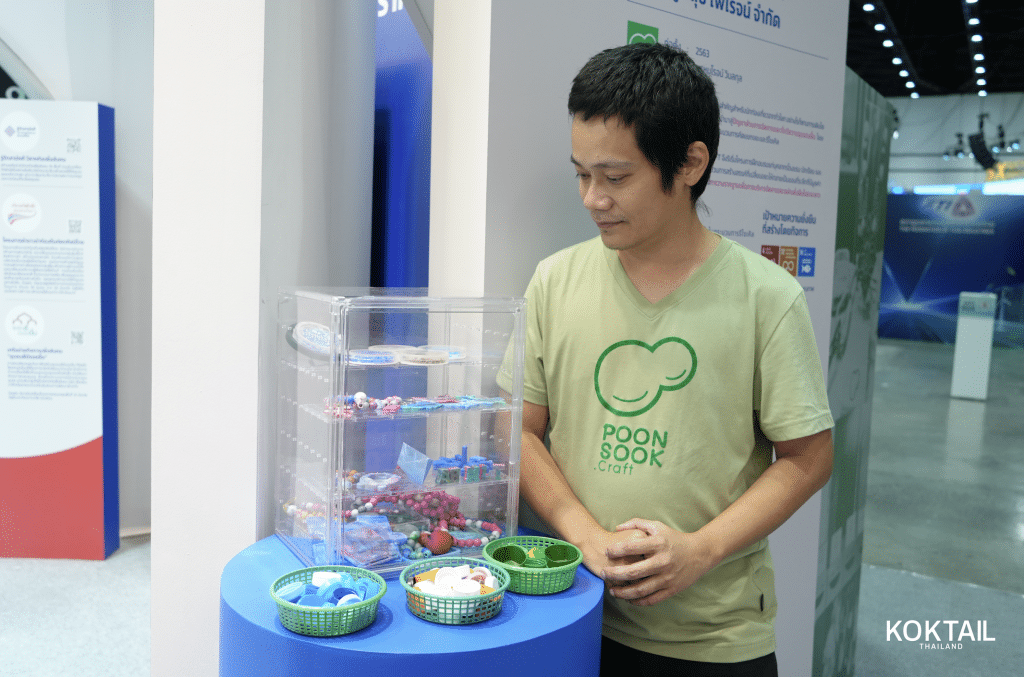
He began with something simple, by producing reusable fabric bags under the brand Poonsook Craft. In its early days the venture struggled to gain traction, coinciding with the Covid-19 lockdown. It was during that time that Ou noticed a massive rise in plastic waste caused by the surge in food delivery services. Conversations with his wife, who works in the environmental sector on sustainable projects, offered new insight. With her advice, he developed the idea of transforming discarded plastics into everyday products, a concept that became the foundation of Poonsook Craft.
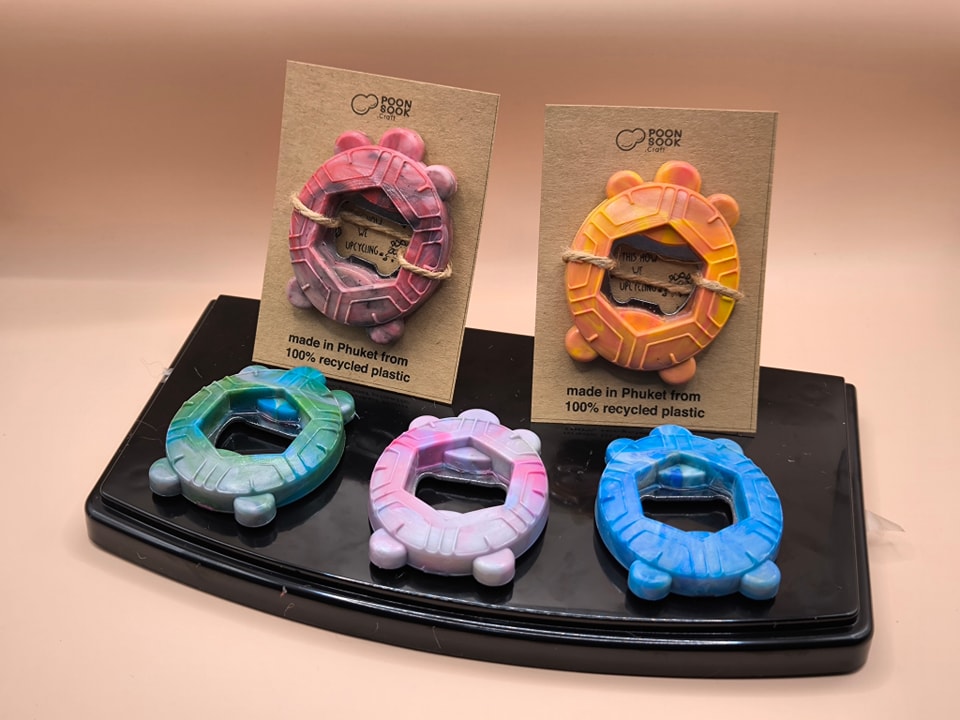
“Our story at Poonsook Craft begins with the ocean. Many of our products are inspired by marine life, shaped to remind people that the plastic discarded in the sea isn’t worthless. It can be transformed into something valuable, while also helping the environment.”
The company is an environmental social enterprise that turns waste sources from the beach into useful, eco-friendly products. The range includes everyday items including can openers and keyrings, as well as bracelets.
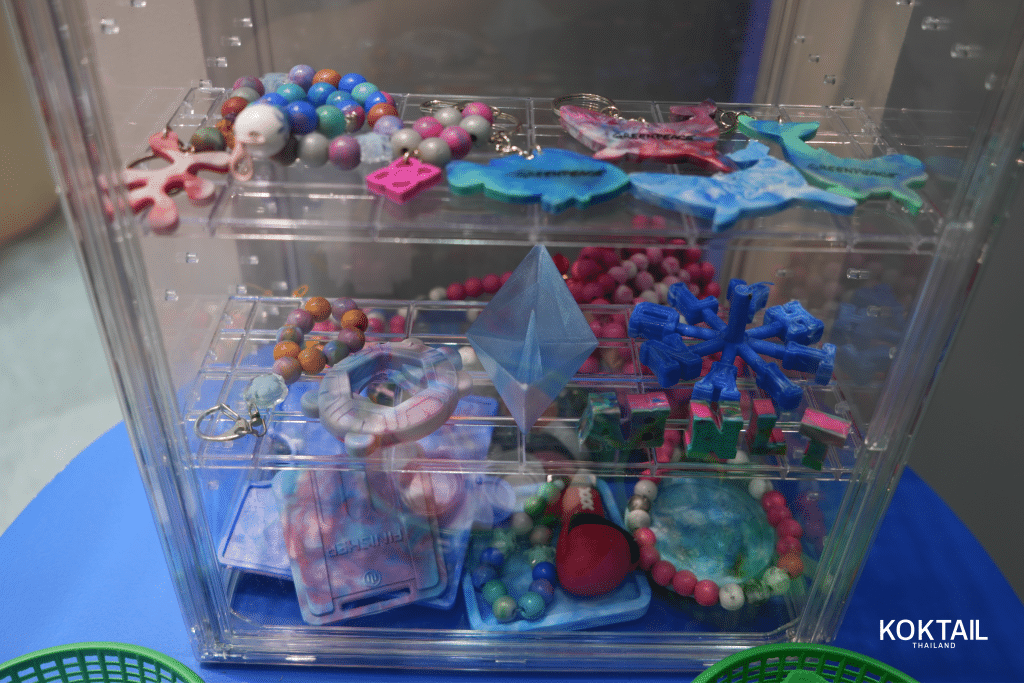
“At Poonsook Craft we’ve developed our own systems, processes, machinery and tools, making our approach unique. Everything is done in-house rather than outsourced.
We started by collecting waste ourselves, including from beaches, but the amount of trash never seemed to decrease. So we researched which items were most common in the ocean and found that plastic bags, bottle caps and straws were among the top ten. We decided to run some tests and discovered that bottle caps were the easiest to process and generated the least pollution during production.”
The collected waste is carefully cleaned, sorted, ground into pigments and moulded into a variety of shapes. Promrote began by creating small keyrings and sharing them on social media, which soon attracted interest from various organisations. From there he continued to develop his tools and processes to meet growing demand. Most of Poonsook Craft’s products are made to order, often for organisations hosting events that want sustainable souvenirs. This approach allows Promrote to control inventory while ensuring that each item he creates is both practical and meaningful.
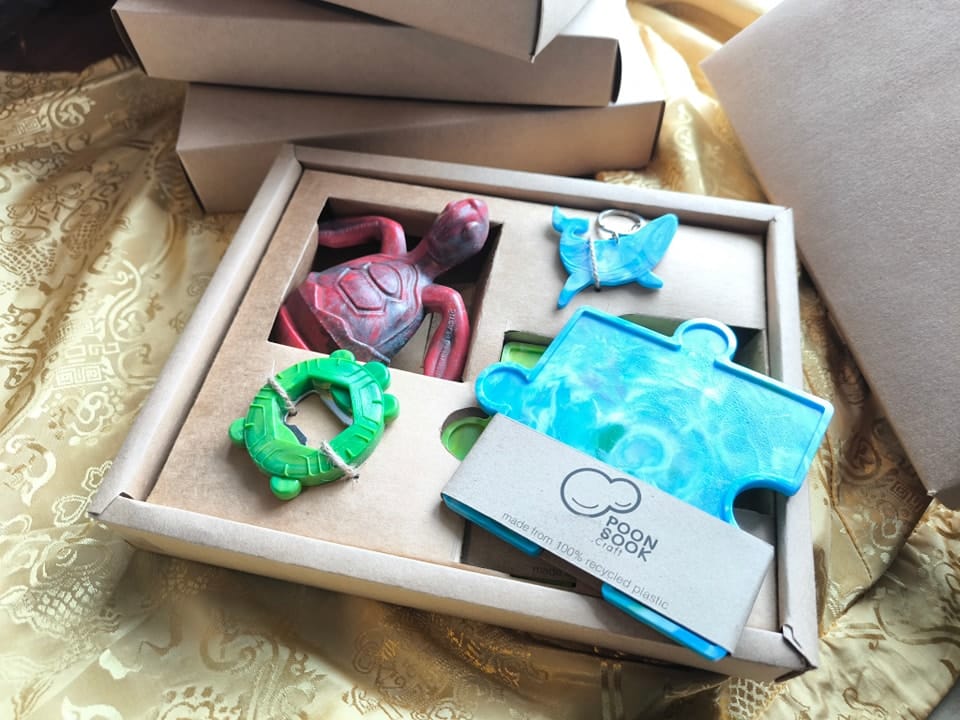
At first he faced the challenge of changing long-held habits in the community. But patiently he began introducing new ideas, leading by example to show the value of his work. Today community members help collect waste and sometimes contribute their skills to produce the products. In this way the project has also driven community development.
“At first when we spoke to the locals, they weren’t very interested. We had to show them that the plastic they gathered could be transformed and sold for up to 3,000 baht per kilo if processed properly, instead of simply collecting and selling it for 2 or 5 baht per kilo. By increasing its value, we could support them while also protecting the environment. Once they saw this, they became much more interested and eager to get involved.”
Ou also runs workshops on waste management, teaching both adults and children in a variety of settings from schools and universities to companies and even at his own studio.
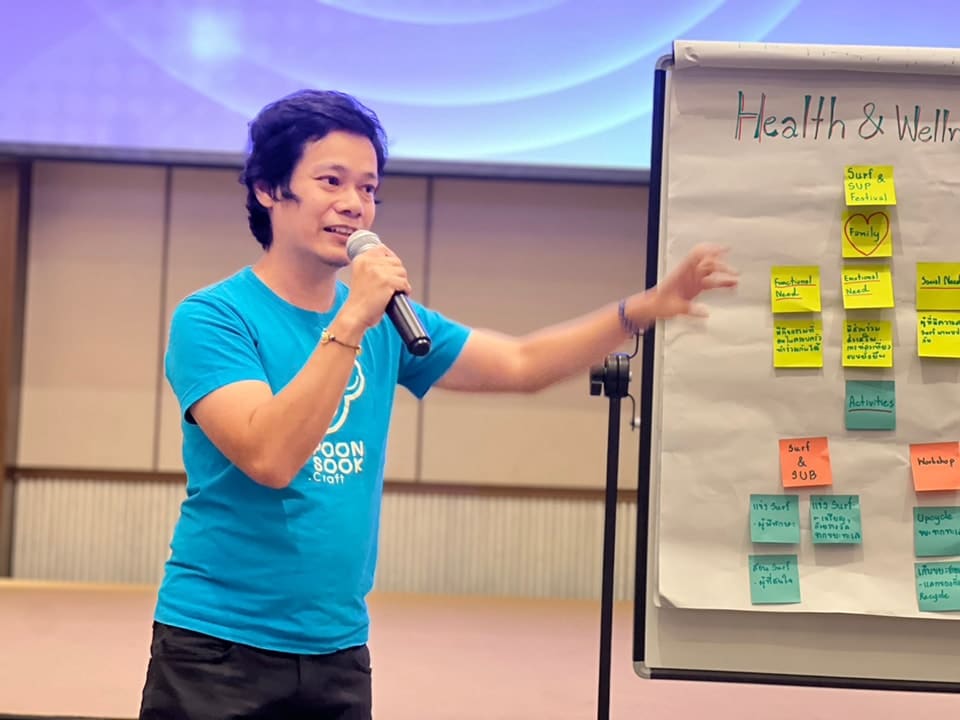
“I’m always impressed by how imaginative children are when thinking about waste management systems. For adults it’s about raising awareness and understanding the impact of their actions,” he says.
Ou has also opened up Poonsook Craft’s recycling efforts for public participation, inviting people to send in their plastic waste from bottle caps and food containers to milk bottles and even old 3D-print scraps, so that it can be transformed into something new. Through a partnership with Green2Get, an application that promotes Thailand’s circular economy initiated by Prem Pruktayanon, Koktail’s Future Lister 2024, participants can even collect points each time they contribute. The initiative makes recycling more rewarding, and helps people see waste as a valuable resource rather than something to be thrown away.

Today Ou and his team are steadily developing Poonsook Craft through a variety of projects he hopes to accomplish. While the journey began with simple beach clean-ups, it has expanded to include types of waste that aren’t accepted by scrap collectors, such as orphaned plastics. This evolution has led to the creation of donation boxes for different materials, sorting out bottle caps, food containers, plastic cups and milk bottles. Through each step, he is showing how small actions can make a difference.
“You can start with yourself. Look at your own habits and what you use most. Check the rubbish bin in your room–how much waste do you create each day or each week? Take it out and see what can be reduced, what can be reused and what can be sent for recycling. From there, try to manage it step by step.”
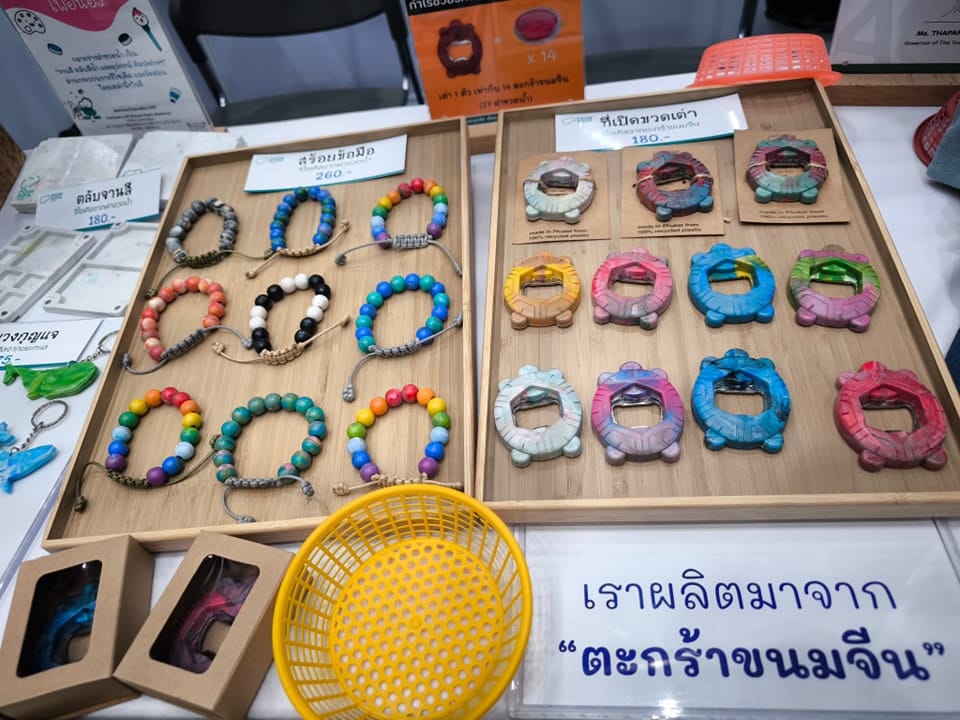
Inside River City Bangkok, a thousand worlds emerge through art, antiques, architecture, ...
In Emerald Fennell’s adaptation of Wuthering Heights, colour is not decorative. It ...
Wandering around the globe, try out the signature tastes of cultures across ...
These top 5 barber shops in Bangkok are where gentlemen can elevate ...
Sailorr and Molly Santana’s black grills fuse hip-hop swagger with homage to ...
From 26 March to 6 April, the Thai Book Fair is back, ...
Wee use cookies to deliver your best experience on our website. By using our website, you consent to our cookies in accordance with our cookies policy and privacy policy